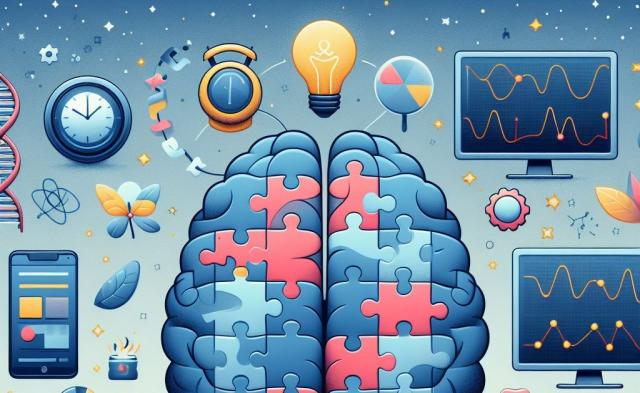The Mind-Body Tech Merge: Can Brain-Computer Interfaces Enhance Human Abilities?
Imagine a world where your thoughts control your devices, where information flows directly to your brain, and where physical limitations are a distant memory. This isn't science fiction; it's the exciting frontier of Brain-Computer Interfaces (BCIs). Bcis are revolutionizing how we interact with technology, and have the potential to fundamentally alter what it means to be human. (Tweet this!)
In this blog post, we'll delve into the world of BCIs, exploring their potential to Enhance Human Abilities across various aspects of our lives. We'll also discuss the challenges and ethical considerations surrounding this emerging technology.
Unveiling the Brain-Computer Interface
At its core, a BCI is a system that facilitates direct communication between the brain and external devices. It does this by translating neural signals, the electrical impulses that carry information within our brains, into commands that can be understood by computers or other machines.
There are two main categories of BCIs:
- Non-invasive BCIs: These use sensors placed on the scalp to detect brain activity. EEG (electroencephalogram) is a common non-invasive method that measures electrical activity across the scalp.
- Invasive BCIs: These involve surgically implanting electrodes directly into the brain tissue, offering a more direct and high-resolution signal.
While both approaches have their advantages and disadvantages, the field of BCI is rapidly evolving, with new advancements blurring the lines between these categories.
Boosting Human Potential: Applications of BCIs
The potential applications of BCIs are vast and cover a wide range of human endeavors. Here are some of the most promising areas:
- Medical Rehabilitation: BCIs can be life-changing for individuals with paralysis or other motor impairments. By translating brain signals into control commands, BCIs can allow users to operate prosthetic limbs, wheelchairs, or even communication devices.
- Augmented Cognition: Imagine boosting your memory, focus, or learning capacity. BCIs have the potential to provide real-time neurofeedback, helping users optimize their brain activity for specific tasks.
- Sensory Restoration: For those with visual or hearing impairments, BCIs could offer a new sense of perception. By stimulating specific brain regions, BCIs could create a visual or auditory experience based on external stimuli.
- Enhanced Human-Computer Interaction: BCI technology could revolutionize the way we interact with computers. Imagine controlling your devices with just your thoughts, offering a more intuitive and seamless user experience.
- Entertainment and Gaming: The possibilities for BCIs in the entertainment industry are endless. Imagine fully immersive virtual reality experiences where your thoughts dictate your actions within the virtual world.
Challenges and Considerations
While the potential benefits of BCIs are undeniable, there are significant challenges that need to be addressed:
- Accuracy and Precision: Current BCIs can be prone to errors and require extensive calibration. Refining the technology to achieve reliable and precise communication is crucial.
- Safety and Security: Hacking into a BCI could have devastating consequences. Robust cybersecurity measures are essential to protect users from unauthorized access.
- Ethical Concerns: The ability to directly interface with the brain raises profound ethical questions. Issues like privacy, identity, and cognitive manipulation need careful consideration.
- Accessibility and Equity: Widespread adoption of BCIs may be hindered by cost and accessibility issues. Ensuring equitable access to this technology is vital.
The Future of the Mind-Body Tech Merge
The development of BCIs is still in its early stages, but the potential for this technology is truly transformative. As we overcome the technical and ethical hurdles, BCIs have the power to redefine the relationship between humans and technology.
The future may hold a world where BCIs seamlessly augment our abilities, blurring the lines between human and machine. But it's crucial to remember that BCIs should be tools to empower us, not replace what makes us human. Open discussion, collaboration, and ethical considerations are paramount as we navigate this exciting new frontier.
This blog post only scratches the surface of the mind-body tech merge. As research and development progress, we can expect even more groundbreaking applications of BCIs to emerge. Stay tuned for future updates as we explore the ever-evolving landscape of brain-computer interfaces!
This post first appeared on SADIKA MEDIA'S CUTTING-EDGE DIGITAL MARKETING AND SOFTWARE SOLUTIONS, please read the originial post: here

